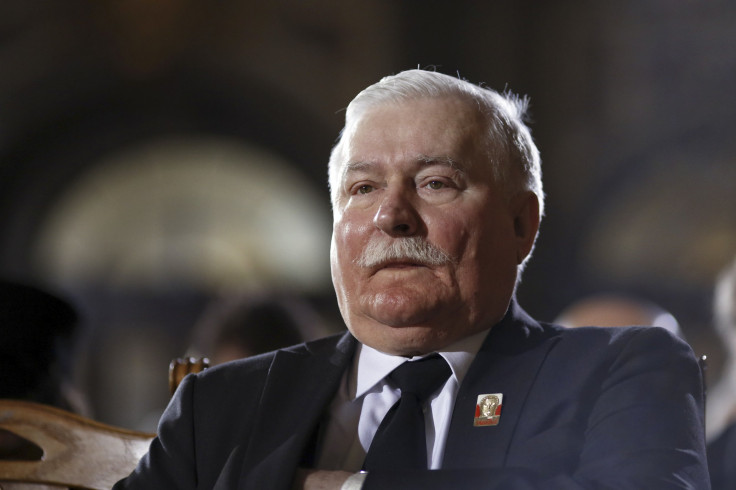Should West Use Nuclear Weapons Against Russia? 'Scare Putin' With Missiles, Says Former Polish President

Former Polish President Lech Walesa told a Ukrainian magazine that the West should confront Russian President Vladimir Putin with its own arsenal of nuclear weapons to curb what he called Russian aggression. Much like other Polish politicians, Walesa has spoken out against Russia numerous times since the beginning of the Ukrainian crisis last year.
The West must do everything possible to curb Russian aggression, including “sending in nuclear missiles,” said Walesa. “It’s important to show we have them, and that they are better than Russia’s.” Walesa, who started his political career as an anti-communist trade union activist in the 1970s, was fundamental in seeing Poland’s transition from a communist state to the Republic of Poland during his five years as president from 1990 to 1995. He was persecuted by Poland’s communist government during his early years in politics.
Poland and its neighbors in the Baltics -- Latvia, Estonia and Lithuania -- have strongly criticized Russia’s annexation of Crimea last year and for allegedly intervening in the Ukrainian conflict on behalf of pro-Russian separatists in eastern Ukraine. All four Eastern European countries were under communist regimes in the Soviet era. Russia denies any involvement in Ukraine and has fired back at Poland and the Baltic States for stepping up military exercises and requesting more NATO support over the last year. The criticism has been particularly harsh in Russia's large state-run media sector. NATO has largely obliged the requests for a stronger presence in Eastern Europe, with the U.S., Germany and the U.K. all verbally reiterating their support for their Eastern allies and with special drills and exercises to show solidarity along the Russian border.
Poland expects a high-tech, $3.8 million security ring consisting of six guard towers around its 125-mile border with the Russian exclave of Kaliningrad to be operational by June, a spokesman said on Tuesday. The announcement came after Russian defense officials said Kaliningrad would receive a shipment of Iskander missiles, which have a maximum range of 310 miles and can carry cluster bombs, electromagnetic pulse devices and nuclear warheads, among other munitions.
U.S. Under Secretary of State for Arms Control and International Security Rose Gottemoeller will visit Poland and the Baltics for three days next week to discuss nuclear nonproliferation, “regional security challenges” and NATO cooperation.
© Copyright IBTimes 2025. All rights reserved.






















